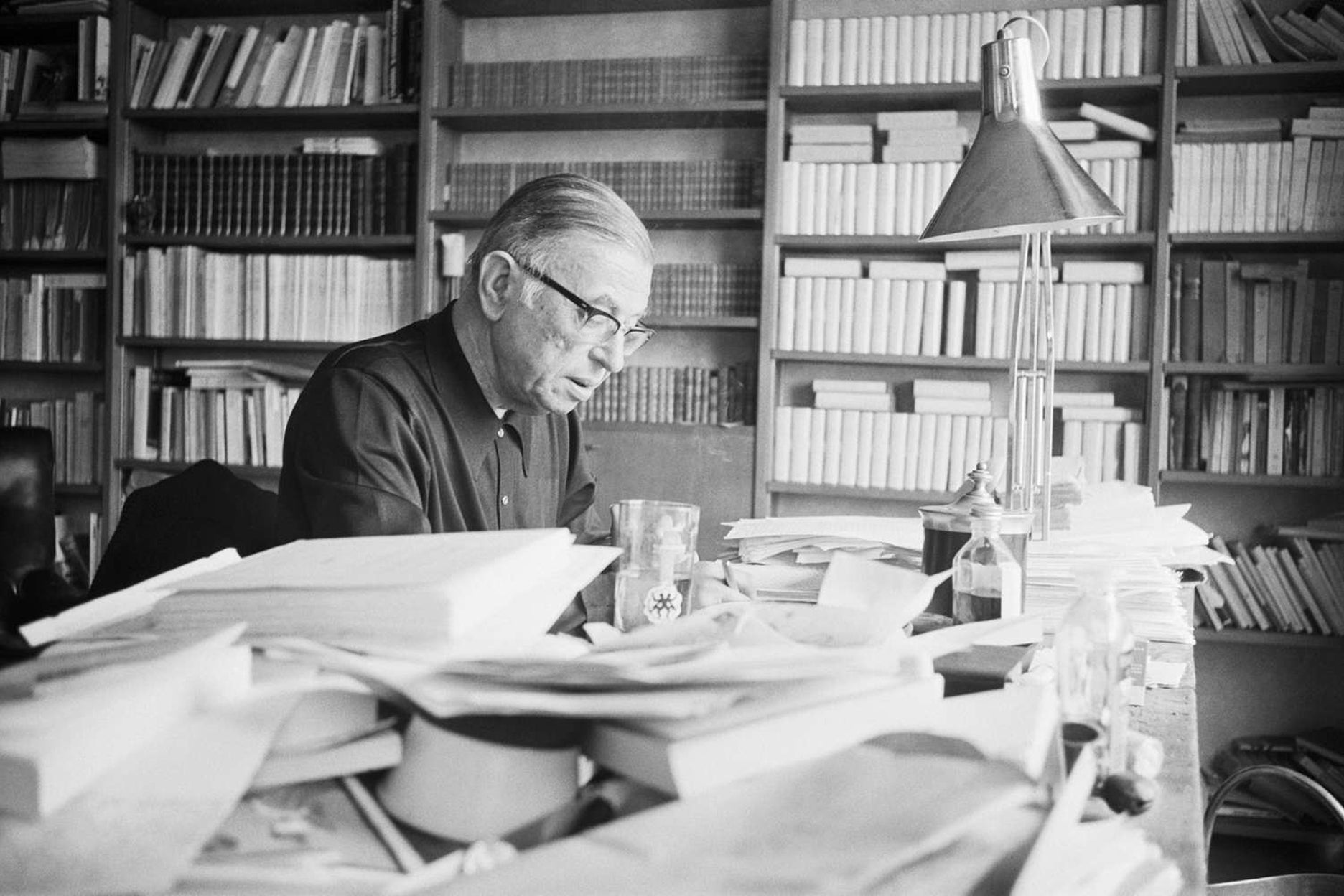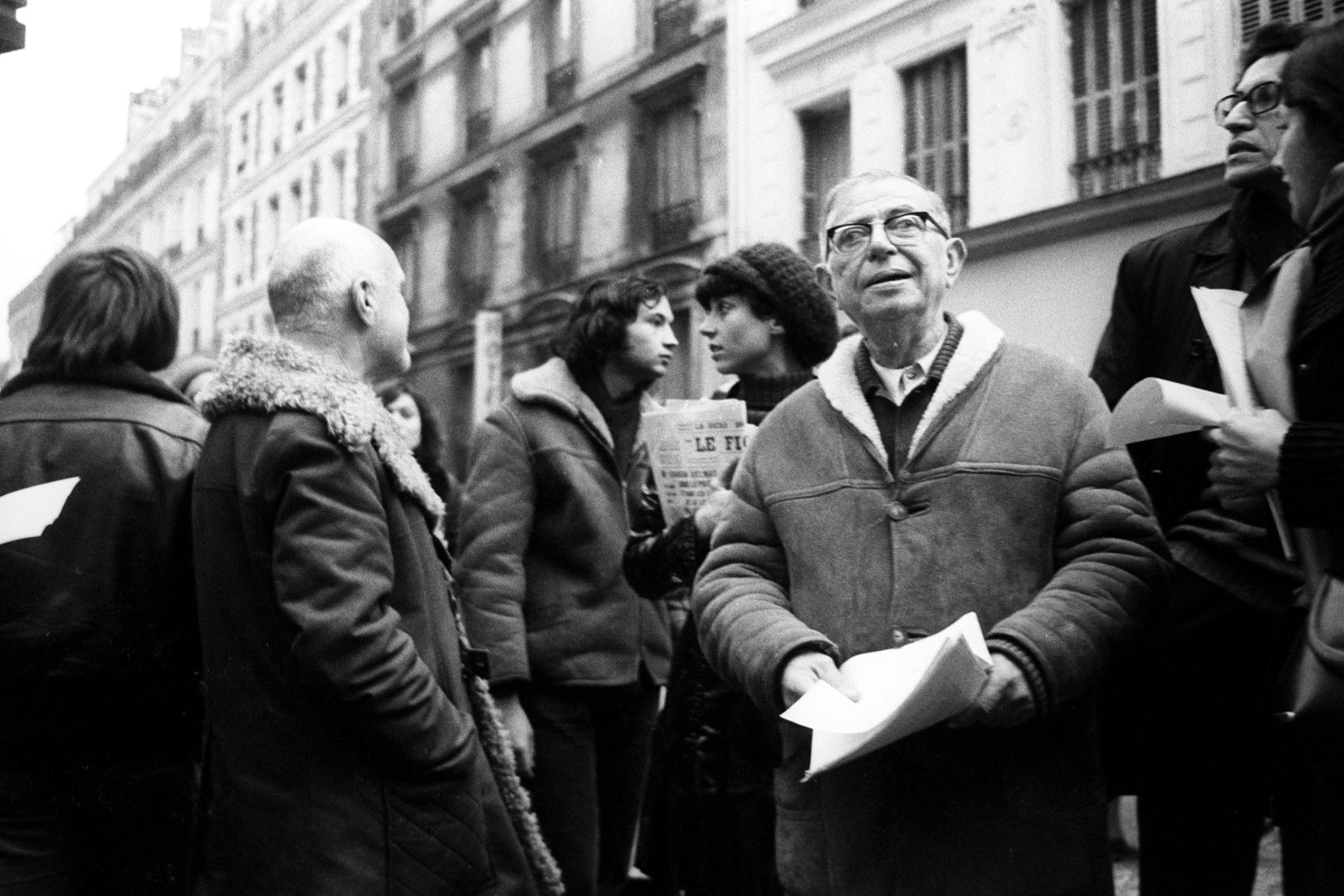
“Existence precedes essence.” With those three words, Jean-Paul Sartre did more than ignite a philosophical movement—he gave voice to the unspeakable anxieties and audacious hopes of a generation poised between the ruins of the past and the trembling possibilities of the present.
“Existence precedes essence.” With those three words, Jean-Paul Sartre did more than ignite a philosophical movement—he gave voice to the unspeakable anxieties and audacious hopes of a generation poised between the ruins of the past and the trembling possibilities of the present.
Born in 1905 in Paris, Sartre would come to embody the intellectual fervor and creative restlessness of 20th-century Europe. Philosopher, novelist, playwright, critic—his life and work were a sustained interrogation of what it means to be free in a world without gods, and how to live when meaning must be made, not given.
In Existentialism and Human Emotions, a slender volume that reads like a call to arms, Sartre challenges the prevailing caricature of existentialism as nihilism. Instead, he offers a radical alternative: a philosophy that insists on personal responsibility, that sees anguish not as defeat but as proof of our freedom. “Man is nothing else but what he makes of himself,” he writes, placing the burden—and dignity—of being squarely on our shoulders.
Sartre’s theory, as austere as it is empowering, formed the basis of a remarkable bibliography that spans genres and generations. In Nausea (1938), a fictional prelude to his philosophy, he gives emotional texture to metaphysical dread, while Being and Nothingness (1943), his magnum opus, attempts nothing less than the architecture of human consciousness—freedom, bad faith, desire, and the Other, all examined with relentless clarity. The trilogy The Roads to Freedom (1945-1950), written largely in response to the events of World War II and the Nazi occupation of France, explores the paradoxes of political engagement and moral choice through richly drawn characters and shifting perspectives. His plays—No Exit (1943), The Flies (1944), Dirty Hands (1948)—dramatize ethics under pressure, consciousness in crisis, turning salons into crucibles and parlor games into existential reckonings.
But Sartre’s reach extended far beyond the page. In the cafés and cellar clubs of postwar Saint-Germain-des-Prés, he became a kind of secular prophet, chain-smoking through interviews, arguments, and all-night debates. At the Café de Flore or Les Deux Magots, he held court alongside Simone de Beauvoir, his lifelong partner and philosophical peer. Theirs was no ordinary relationship—it was a lived experiment in intellectual and romantic freedom, an open dialectic between minds that refused to be contained.
While Sartre rejected the label “existentialist” late in life, the movement he helped define left an indelible mark on literature, art, and cinema. Filmmakers from Bergman to Godard borrowed his themes of alienation and authenticity. Writers like Albert Camus and Samuel Beckett engaged, resisted, and ultimately expanded his ideas. In the visual arts, existentialism’s emphasis on absurdity, freedom, and individual perspective found expression in abstraction and conceptualism, reshaping how artists conceived of self and society.
He refused the Nobel Prize in Literature in 1964—not out of modesty, but conviction. To accept, he said, would be to institutionalize himself, to become an artifact. Sartre’s legacy was not meant to be chiseled in marble but scattered like pamphlets in the street.
And yet, for all his iconoclasm, there is something almost classical about Sartre’s sense of engagement. He believed philosophy should be lived, not simply written or preached. Whether critiquing colonialism in Algeria or denouncing the hypocrisies of the bourgeoisie, his thought was always in motion, pressed into the service of becoming.
He died in 1980, blind in one eye, unrepentant and unbowed, his funeral drawing tens of thousands into the streets of Paris. Today, his image lingers not just in libraries and lecture halls, but in the collective psyche of those who care to still ask: What is freedom? What is my responsibility? What now?
Because in the end, Sartre’s lesson wasn’t about despair. It was about daring to choose, to act, to become.

WRITTEN BY JMM
#ARTs